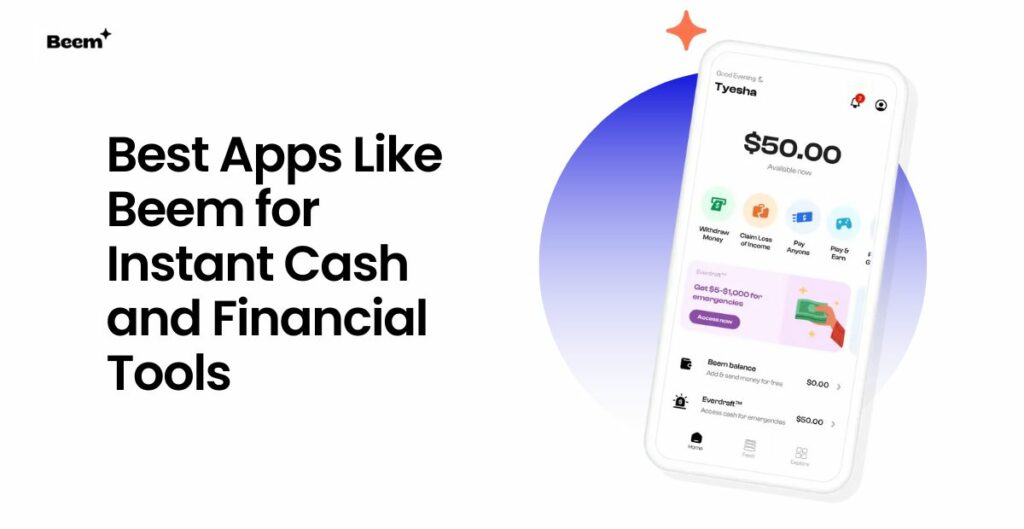Table of Contents
Education is often seen as the gateway to career advancement, personal growth, and long-term success. However, with the rising costs of traditional degree programs, it’s more important than ever to evaluate the return on investment (ROI)when spending on education. The question many face is: How do you ensure that the money, time, and energy you invest in a course or program will bring tangible benefits, both financially and personally?
While a traditional degree has long been the gold standard in education, alternative learning paths are now emerging that promise similar career outcomes at a fraction of the cost. With options such as online courses, boot camps, certifications, and apprenticeships, it’s possible to gain valuable skills without the heavy financial burden of tuition fees. In this blog, we’ll delve into how to assess course ROI, examine the benefits and drawbacks of traditional education versus alternatives, and discuss strategies to optimize your educational spending and achieve the best return on your investment.
Understanding Course ROI
What is Course ROI?
Course ROI refers to the financial and non-financial returns you get from investing in an educational course, degree, or certification. Financial returns are easier to quantify—think of an increase in your salary or career advancement. Non-financial returns might include personal growth, job satisfaction, skills gained, and networking opportunities.
When you invest in education, you’re not just paying for a certificate or degree—you’re also investing in your future career, the potential for a higher salary, job stability, and even personal enrichment. Therefore, evaluating Course ROI helps you understand if the financial and time investment in a course or degree will be worth it in the long run.
Why ROI Matters
As education costs continue to rise, the ROI of a course or degree becomes increasingly important. For many, taking on student debt or investing time in a lengthy degree program is a big commitment. Therefore, you need to ask yourself: Will this investment pay off? The financial benefits, such as increased earnings or career progression, must outweigh the costs of tuition, fees, and any additional expenses.
Additionally, the longer-term value of an education program isn’t always immediately visible, making it even more crucial to calculate ROI. If you plan to commit a few years of your life to obtaining a degree or certification, it’s essential to consider how that investment will impact your career in the future.
Calculating Course ROI
Calculating ROI isn’t a one-size-fits-all equation. However, a simple formula might look like this:
ROI = (Post-Graduation Salary Increase – Total Education Costs) / Total Education Costs
Let’s say you’re pursuing a degree that costs $40,000. Upon graduation, you land a job with a $60,000 annual salary, which is $20,000 more than you were earning before. The ROI in the first year alone would be 50% ($20,000/$40,000).
However, it’s important to consider factors beyond salary. Does the degree open doors to opportunities that wouldn’t have been available without it? Does it contribute to personal fulfillment, or are there other more affordable educational routes that could achieve similar results?
Non-Financial ROI
Course ROI isn’t just about money. Non-financial returns, such as personal satisfaction, skill acquisition, and career fulfillment, should also be considered. For example, someone might invest in a liberal arts degree because it provides a sense of personal growth, creative expression, or the ability to contribute to society in a meaningful way. These non-financial benefits may not be immediately quantifiable but can still be just as important to a person’s overall well-being and career success.
High-ROI Traditional Education
Despite the growing popularity of alternative education, traditional degrees remain the gold standard in many fields. Specific disciplines continue to offer high ROI in terms of salary and career stability. Some high-ROI degrees include:
- Engineering: Degrees in civil, mechanical, and software engineering often lead to high-paying jobs with strong growth potential.
- Medicine: Healthcare-related degrees, especially those in nursing, pharmacy, or medicine, tend to offer high earning potential.
- Technology: Computer science and IT-related degrees continue to be in high demand, leading to lucrative salaries and job opportunities.
- Business: MBA degrees or undergraduate business degrees from well-regarded institutions can significantly increase earning potential.
The Long-Term Value of Traditional Degrees
One of the most valuable aspects of traditional degrees is the career advancement opportunities they offer. While some industries are embracing non-degree paths, many still value the structure and credibility that comes with earning a degree from a reputable institution.
Furthermore, traditional degrees often provide networking opportunities, internships, and alumni connections that can prove invaluable in the job market. These long-term benefits should be considered when weighing the ROI of pursuing a degree.
Challenges of Traditional Education
Although a degree from a well-known institution can pay off in the long run, the upfront costs are high. Tuition fees are rising, and many students are burdened with student debt after graduation. On top of that, degrees can take several years to complete, delaying your entry into the workforce.
With the high costs of tuition and associated expenses, it’s critical to weigh whether the potential salary increase and job opportunities justify the investment. For many, it’s also important to consider whether their degree will still be relevant in the changing job market.
Read related blog: Portfolio Diversification for Stability: Your Essential Guide to Resilient Investing
Alternatives to Traditional Education

Online Courses and Certifications
In recent years, online learning platforms like Coursera, Udemy, and LinkedIn Learning have revolutionized education. Offering everything from tech certifications to business management, these platforms provide affordable courses with flexible schedules. The ROI of these courses can be high, particularly in fields like digital marketing, programming, or graphic design.
Many employers are beginning to value certifications from recognized platforms over traditional degrees, especially in tech-related fields. Since online courses are significantly more affordable than traditional degrees, they offer a high ROI for those looking to build skills without the burden of student debt.
Bootcamps (Coding, Data Science, etc.)
Coding bootcamps, data science programs, and other accelerated training programs provide highly specialized, hands-on education in a short period. These bootcamps are an attractive option for those looking to break into fields like software development, web design, and data analytics. The ROI is often high because bootcamps focus on in-demand skills and provide students with direct pathways to employment.
Bootcamps typically cost less than traditional degrees, with programs ranging from $5,000 to $20,000, and students can land jobs with starting salaries ranging from $50,000 to $80,000 in some cases. While bootcamps require intense dedication and time, they can offer faster, more focused pathways to career success.
Apprenticeships and Internships
For those who prefer a hands-on approach to learning, apprenticeships and internships offer valuable work experience while learning on the job. These alternatives are often free or offer a small stipend, which makes them an affordable option for those who want to learn practical skills without paying for formal education.
Industries like construction, IT, and even creative fields like marketing and design are increasingly embracing apprenticeships as a legitimate pathway to career advancement.
Microcredentials and Badges
Microcredentials are short courses that certify you in specific skills, such as project management or data analysis. These certifications are recognized by employers as valid indicators of expertise, particularly in tech, finance, and business.
Platforms like Google and IBM now offer certifications in specific skills that employers are actively looking for, often at a fraction of the cost and time commitment of a traditional degree.
Comparing Course ROI and Alternatives
When deciding between traditional education and alternatives, consider both costs and expected returns:
- Traditional Education: Offers long-term career advancement, networking opportunities, and a structured learning environment but comes with high costs and time commitments.
- Alternatives: Offer fast-tracked skill acquisition, lower costs, and flexible schedules but may lack the broader career prospects and networking advantages of traditional degrees.
Assess your career goals, financial situation, and the industry you’re aiming for to determine the best route for you.
How to Maximize Your Education Spending?
Choosing the Right Course or Program
To ensure you’re getting the best ROI, research is key. Look at graduation rates, alumni employment statistics, and the specific skills taught in the course. Also, use Beem’s Budget Planner to track your education expenses and ensure that the cost of your program aligns with your budget.
Optimizing Your Educational Investment
To maximize ROI, consider complementing your formal education with practical experience, internships, and networking. Volunteer, participate in side projects, and build your personal brand online.
Financial Planning for Education
Use tools like Beem’s Budget Planner to map out your education expenses, set savings goals, and manage your finances efficiently. Being proactive about your budget ensures that your education is a sound investment without compromising your financial stability.
Read related blog: How to Automate Your Savings and Bill Payments: The Ultimate Guide for Effortless Financial Success
Conclusion
Investing in education is one of the most effective ways to unlock career growth and long-term success — but it’s also one of the biggest financial decisions you’ll make. Whether you’re pursuing a traditional degree, online certification, or a hands-on bootcamp, understanding the return on investment (ROI) ensures every dollar spent moves you closer to your goals.
With Beem’s Budget Planner, you can create a personalized education budget, track tuition and course-related expenses, and allocate funds toward learning without compromising your financial stability. Suppose you ever face unexpected costs like exam fees, learning materials, or emergency expenses. In that case, Beem Everdraft™ provides instant access to up to $1,000 — no credit checks, no interest — helping you stay focused on your studies, not financial stress.
Beyond budgeting, Beem’s Smart Wallet and Cashflow AI help you Earn, Save, Send, Spend, and Grow your money more efficiently. Plus, with Job Loss Protect™ and Identity Theft Insurance (up to $1M), your financial well-being stays protected as you invest in your future.
Empower your education journey with Beem — plan smarter, spend confidently, and invest in learning that pays dividends for a lifetime. Download the Beem app today and make every step toward your goals a financially sound one.
FAQs
What is ROI in education and why is it important?
ROI in education refers to the returns—both financial and personal—that you gain from your educational investment. It’s important because it helps you determine whether the time and money spent on a course, degree, or certification will lead to a worthwhile career boost, higher salary, or personal growth, ensuring you’re making an informed decision.
Are online courses as valuable as a traditional degree?
Online courses can offer just as much value as traditional degrees, particularly in fields like tech or business. They are often more affordable and flexible, with certifications that are increasingly recognized by employers. However, for certain professions that require in-depth knowledge or credentials, traditional degrees may still hold more weight.
Can bootcamps replace traditional education for a career in tech?
Yes, coding and tech bootcamps are becoming a popular alternative to traditional degrees, offering a focused, intensive learning experience in a short time. They provide practical skills that are highly sought after in the tech industry, making them a cost-effective way to enter the field quickly compared to a four-year degree.
How do I evaluate whether an education program is worth the cost?
To evaluate an education program, consider factors like expected salary increases, employment rates for graduates, program reputation, and financial aid options. It’s essential to assess both the short-term costs and long-term value, including personal growth and career opportunities, to determine if the investment will pay off.
How can I make the most of my educational investment?
Maximize your educational investment by getting involved in networking, internships, or side projects to gain hands-on experience. Stay updated in your field through continuous learning, leverage available resources like alumni networks, and apply the skills you’ve learned to real-world situations for greater career success.















































